Nothing ignites our protective instincts more intensely than when our children are hurt, whether physically or emotionally. If their distress has been caused intentionally by another child, we experience a brew of emotions that can be almost impossible to control. But to be of genuine help to our children in these situations, I believe we must challenge ourselves to do just that: control our own emotions. When we follow our impulse to rush to our child’s rescue in a panic of judgment or anger (How dare you, you brat!”), or with a flood of sympathy (“Oh, my poor baby!”), we unwittingly send messages like these:
- Something seriously awful just happened.
- Your world is a cruel, unsafe, overwhelming place.
- You’re a victim, and you need me to rescue you.
What might this look like? Here are 3 scenarios:
1. We’re at the park when out of nowhere a child forcefully pushes our 2-year-old to the ground. We race in immediately and frantically, scooping up our child and holding him close (“Oh, my gosh, are you all right?!”), while shouting at the instigator, “How could you do that?! No pushing! Don’t ever do that again!” Our child wasn’t crying until we started shouting, and now he shudders and sobs.
2. Our 4-year-old comes home from school and shares that two of her friends said, “You can’t play with us.” We can’t hide our anguish and respond, “Oh, no! That’s not nice. How did that make you feel?” But our question may as well be rhetorical, because we’re certain our child is deeply hurt (perhaps recalling our own childhood experiences of rejection), and our tone is leading the witness by a combination of outrage and pity. We ask, “What did you do then?” but our child only shrugs, too deflated and embarrassed to speak.
3. We’ve brought our toddler to a friend’s house for a playdate with her son. Our friendship has been a bit strained lately because the friend’s son seems such a brat, constantly ripping toys out of our child’s hands. There’s a new baby in the house and tensions are high, but still, it’s hard to empathize with this boy when his behavior is so obnoxious. “He took the toy and that makes you sad,” we acknowledge empathically to our daughter, who has a blank expression. Finally, we can’t take it anymore. Gritting our teeth, we snarl, “No, that’s enough! You can’t have that, too”, and we snatch it away from him.
But what if these scenarios played out differently?
1. We see our child get pushed, and we briskly move toward him. Taking our cues from his demeanor, we get down to his level and acknowledge, “I saw that. You were pushed down. Are you okay?” He looks confused but not seriously hurt. (If he was upset, we would acknowledge in an empowering, not pitying tone, “Wow, you did not like that. That hurt.”) We focus on being available to our child but sense the other child’s uncomfortable presence. This isn’t the time to berate or scold, nor will either of those responses teach a child a constructive lesson. She is only acting out of her own immature impulses, and the less we make of this, the less power her hurtful behavior will have. We let it go, though we calmly stand by to block anything else that might happen between them.
2. We bravely listen to our daughter share how she was excluded and notice that for her it actually doesn’t seem all that awful. It’s almost as if she’s bouncing it off of us to see what we think. And we so want to be that safe person in her life with whom she can share anything. So, for the moment, we suppress our anger and sadness to be strong for our child. We take a slow breath and listen with an open mind and heart. We ask with genuine curiosity, “Hmm…wow… what did you think of that?”
“It made me sad.”
“Gosh…yeah… I’m sorry to hear that.”
Then silence. A very-difficult-for-parents kind of silence. Finally, after the minute or two that seem like hours, our daughter says: “I went on the swing. Then Robert and I played Superman and Supergirl.”
“Sounds fun.”
Then, if it feels right, we might calmly offer, “You know… Sometimes kids do those kinds of things because they aren’t feeling that happy about themselves. When people are happy, they tend to behave kindly.”
3. We’re aware that toddlers tend to be territorial, especially when they’re at their own home. Controlling, impulsive behavior is particularly common and to be expected with the adjustment to a new sibling. We’re also aware that 1-3 year olds are just learning how to play together, and toy-taking (let’s call it exchanging) is one of the ways they commonly engage. To be truly attuned to young children, we must remove our adult lens and practice more objective observation.
So, there we are. Our child seems a victim of toy snatching, and every time it happens she seems deeply upset, perhaps even traumatized. Or, wait… could that be because we’ve injected so many of our own emotions into the situation and made a big deal out of this? Are we projecting? Our child knows her friend’s M.O., and yet she always asks to have playdates with him. Is it possible she’s playing into the drama a bit? Even enjoying it? But I can’t let her, that would be encouraging abuse, wouldn’t it? But it’s just a toy. She doesn’t even like those kinds of toys. Hmmm…
We decide to be more open, curious and neutral about the whole thing, to sensitively observe and intervene minimally and responsively. He takes the toy and our daughter looks over at us, so we acknowledge, “I saw that. You were holding that lamb and now Joey has the lamb.” She starts to scream in outrage, but then stops. She reaches for it, pulls hard and takes it from Joey. Joey screams and she hands it back. We realize that what’s happening here is a lot more innocent, exploratory, complicated, and mutual than we had thought. We decide to only intervene when the toy taking is nonstop and then we do it matter-of-factly without emotion or blame. “Hmm… I’m going to stop you this time Joey. Maybe you can find another way to play.” They do.
In these parenting scenarios, our child receives affirming messages:
- Uncomfortable things happen, but I’ll be okay.
- My parents understand that kids make mistakes, and they forgive. They don’t label us “good” or “bad.”
- I can share difficult feelings and explore situations with my parents without them getting upset.
- They listen to and trust me. They give me ideas for handling situations, but they never tell me what to feel.
If we can refrain from infecting these tense situations with our own emotions, projections, assumptions and other baggage (at least some of the time), we might even become the person our child can always feel comfortable confiding in. There is no greater gift.
♥
I share many more demonstrations of the responses and tone that help our children to process social experiences (and gain confidence) in my audio book
No Bad Kids: Toddler Discipline Without Shame
and also in my podcast series: “Janet Lansbury Unruffled“
(Photo by Suzette on Flickr)

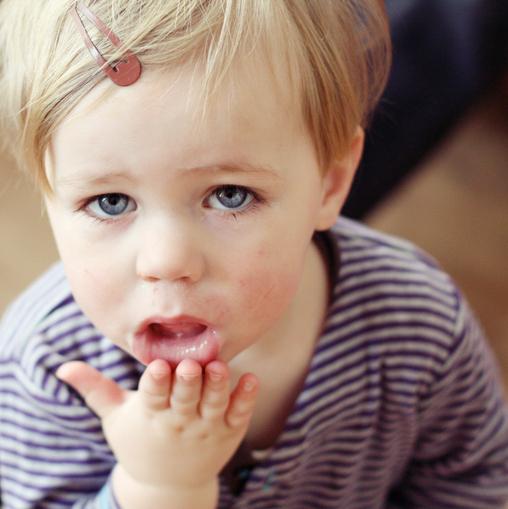
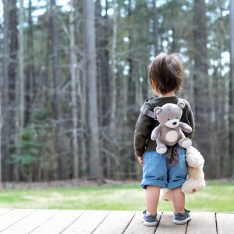
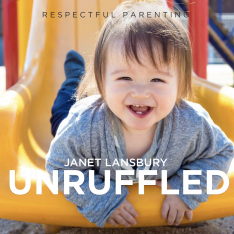
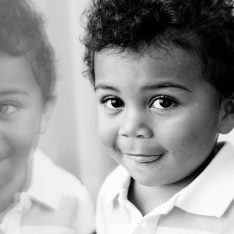

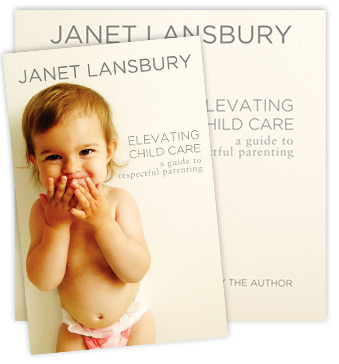

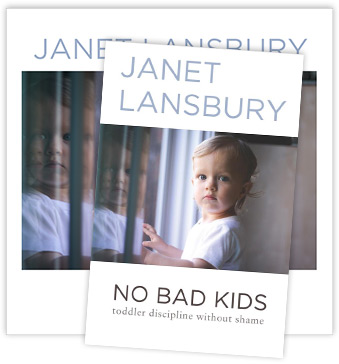
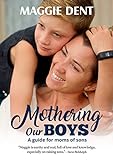
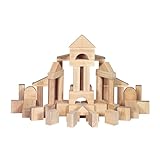

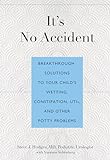
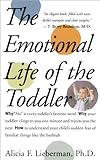
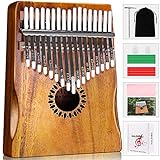
Hi Janet, great post. I am reading all of your work voraciously as the mum of older kids, now 6 and 8. I wish I’d discovered RIE parenting sooner, but didn’t. My 6 year old is a wonderful kid, but every now and then will lash out really badly at other kids, particularly when he is backed into a corner emotionally I would say. We have very close family friends who have an 8 year old who my son doesn’t get along with very well, and there have now been 2 scenarios when I wasn’t present where my son has bitten badly and also tried to strangle the other boy…very distressing for all involved. In the strangling incident I know the father of the 8 yr old was completely panicked and reacted very badly towards my son, by yelling and putting him in time out. He judges him as ‘a bad kid’ and I just know he isn’t but need some advice on how to manage things with my son.
Wtf. I don’t blame him. He’s trying to strangle another kid? No. Keep your kid the hell away from other kids if he’s doing that. Yelling and putting in time-out is completely understandable and frankly tame for the severity of how bad your kid messed up. If I were the other parent, I’d never let him over again and would warn others. STRANGLING. Not to mention the biting. Jesus. Yeah, you need FIRM BOUNDARIES AROUND STRANGLING OTHER CHILDREN. and that does NOT include putting down the parents of the other child for stepping in where you’ve clearly failed.
Frankly, this is about the last straw for me. There’s peaceful parenting and there’s doormat parenting and it’s pretty evident which this is. Embarrassing. I don’t want to be associated with this.
Thanks, Michelle. Why do you think your child is lashing out like this? Could he be repeating the violent actions of his sibling? I’d start by exploring and understanding where this behavior is coming from, also I would definitely be there when situations are charged, whether it’s between him and his sibling or with other children. Sounds like he needs a lot more help feeling more protected from his sibling and controlling his impulses with other children.
Hi Janet, Thank you for all of your posts, podcasts & books. They have been extremely helpful for my family. I was also going to ask about the flip side of aggressive interactions (but not physical). I have a 4 yr old who often gets verbally aggressive or very frenetic with her body at playgrounds when something is not feeling good for her. Like if she notices that I am mostly having to watch my 1 yr old for safety reasons or also when she is playing with one friend and another one shows up. She often has very strong feelings about uncomfortable situations like giving attention to multiple friends. I get it but most people do not. At the same time i don’t want to offend anyone or have her sneer at people. In public I don’t know what to do if she laughs wickedly at a kid, or throws her body around wildly. Or especially if she says, “we don’t want to play with you” or starts telling or listening to secrets from one friend while ignoring or scrunching up a face at another. My mind freezes a little in some situations, especially in public! I sometimes try to take her to the side and check in but many times she is too riled up. Should we just leave the park if she is showing rude faces? How would you phrase it? Thanks!!!
Love this! I just wish that it was this simple when they become teenagers and are hurt by their peers…
Thanks, Rachel. Yes, the processing of these experiences can tend to get more complicated as children get older. All the more reason to try to provide them with a comfortable, open person (us) to help them explore the situation and their feelings around it.
Janet, a very helpful post. As my son approaches his second birthday, we’re involved in more and more group play scenarios and it’s hard to know how to manage interactions with other people’s children. This is a wonderful reminder. I’ll have to find more of your posts on the topic.
I agree this is helpful, but I find it far more difficult to remain calm and know how to respond when my child is the instigator, not the recipient. Can you please post a similar post like this, only this time our child is the one who hits, pushes, or otherwise attacks?
Yes totally agree. Then I worry that I am sending the message that I am more concerned about the other child than my own son. A post of what to say and do when it’s another child doing it would be amazing
What a lovely post! Are you familiar with Naomi Aldort? She was the first person I heard from about empowering kids to not feel like a victim in her articled called Beyond Validation: (something something). I am glad to see the same message echoed here we do not need to teach children that life is horrible when they seem fine. We can just listen to their expressions and then respond.
I’m curious to know if you have any tips for older children who are hurt by more intense bullying or friend hoarding behavior.
I’m pouring over the site and still can’t find this answer… I’ve found the answer for if they aren’t that bothered by it, but my son was in tears and lashed out by eventually pinching her and then when it happened again, hitting her (he is 3)
Hi Janet, this is such a timely article for us! We have a good family friend who’s son is four the same age as our oldest boy. There is a lot of pushing, grabbing and toy taking from their child. Both his mom and I follow your blog and so we mostly try to sportscast and let them work it out, however, my son has expressed more than once now that he no longer wants play dates with this family and doesn’t enjoy being with this other child. Should I respect my child’s wishes and limit our interaction with this family or should we keep trying to help them through this?
Thanks, Janet, for the great article. I also have similar questions as some of the others. My daughter is 2 and is often the one taking other toys and saying “mine”, even though in most cases the toy is the other child’s. I often feel guilty not intervening and I typically ask her to give the toy back or ask her to see if the other child is willing to give her a turn. I’m much more comfortable not intervening when my child is on the receiving end of the behavior – but when she’s causing it, I feel obligated to get involved! Help!
Hi Janet,
Great post! Thank you. Scenario #1 just happened to my 2 year old girl today at the park. An older girl came over to where my LO was playing on the rock wall. I turned my back to grab her water bottle and next thing I see is the older girl (3-4) kick my girl. Its so hard not to jump in and “save her ” from what just happened. Instead, I came over and stood by my girl’s side, acknowledging “I saw that she kicked you” and asked her what did she think about it? She said “No stop I don’t like that”. I acknowledged what she said “no you didn’t like that”. I was proud of her for speaking up to the older girl. (She’s usually very timid around older kids and will not engage in play with them). She wasn’t crying or anything, and the older girl started to crawl into a ball in the corner when I was present and looked like she was going to cry.
Any other suggestions on how I could have handled the situation even better? I’m a relatively new to the RIE approach and have been listening to your podcasts and reading your books to help navigate through toddlerhood.
Thanks Janet!
Regards,
Amanda
If any kid tries to hit my kid in the playground and I am close enough to stop it, you can expect me to put my hand out and say ‘NO!’. And my voice will be stern. Not confident and unruffled. Stern. Hitting is not OK. And I’m sure as hell not going to sit back and watch while someone else’s kid gets violent with my kid.
There’s a big difference between responding protectively, yet calmly when young children display aggressive behavior and sitting back to watch. I’m sorry you don’t see the distinction.
I see the distinction. I just don’t agree. Only last week I watched a boy hit my girl because she didn’t want to share her ball. I watched and she came back to me, told me about it, and I gave her a big cuddle. When I set her back down on the ground, the same kid walked over, tried to steal her ball again, and when she said no he pulled back his fist, preparing to hit her again. Except this time it was happening within my physical radius. I put my arm around my daughter and my other hand up. I said ‘No! No hitting!’. I didn’t yell, I didn’t call him a brat, I was not out of control. But I was not going to let him hit my child. And my voice carried weight. It was not out of control, it was not abusive. It was stern.
I agree with a lot of RIE, and I certainly don’t yell at or hit my child, but the idea that you should always modulate your tone voice to sound ‘unruffled’, I can’t agree with. I don’t hide my feelings. My daughter hears when I am joking, tired, serious. And on very rare occasions she will hear anger in my voice too. Controlled, but sharp. Maybe two or three times a year.
Have you honestly never used a stern voice with your children?
Yes, I’ve lost my temper with my children, but never because I wanted to or thought it was a good way to handle a situation. For over twenty years, I’ve worked with children and parents on both sides of these issues (“aggressors” and “victims”) and I’ve learned that harsh, stern attitudes aren’t beneficial to either child. Those responses only add fuel to aggressive impulses (because kids get hooked on and learn to identify with the negative attention) while teaching “victims” that they ARE victims, and that every difficult situation is a crisis, and that their parents are reactive, and that they aren’t capable of handling themselves in age-appropriate social situations. Children hit, bite, kick, push, and behave rudely for one reason: discomfort. I’ve worked with many, many children passing through phases of discomfort. I empathize with, rather than judge them, and the phase passes. Judging them only pushes them further away and creates even more discomfort, perpetuating the behavior.
Hi Janet, I just randomly happened to read this article and I happen to agree with Mama Bear. Not reacting when your child is being hit by another WHILE YOU ARE THERE only teaches your child they are on their own- nobody will stand up for them = and you wonder why are there so many teens bullied into suicide.
Yes. This.
It’s our job to protect our kids.
How Janet has the audacity to say that using a stern voice is losing one’s temper is beyond me.
I encourage parents to respond immediately and, ideally, preventively, rather than to knee-jerk react. We are powerful. Our emotional reactions are very disturbing and unhelpful for our child and they certainly don’t help another child to do better. I’d consider the end result you are looking for with your reactions.
Hey Janet!
Your articles and podcasts always seem to come to me at just the right time. I have really been working through how to empower both the “giver” and the “receiver” of the aggressive behaviors with my own children.
I had a question about name-calling while it is happening. My son is nearly 6, and he frequently uses that as a way to exhibit his frustrations with my daughter, who is 3. For example, you’re slow, you’re not good at that, you’re lame, etc. When she replies that she is NOT _____, he will just insist on it and tell her that it’s “just true.” I have tried just saying that she does not like it, but I know that he is aware of that. I’m not sure how to be more constructive without making my daughter feel like a victim.
I also just started watching another little girl during the week (who is also 3) and the other day she was (initially) teasingly calling my daughter a baby. My daughter began shouting that she was NOT a baby, which fueled her to say it more aggressively. I heard my daughter name-call for the first time ever yesterday – she called my littlest one (9 months) a “stupid baby.”
I am curious as to any advice how to end the cycle? This hits very close to home emotionally with me, as my ex-husband name-called constantly and very hurtfully. Any help would be appreciated. Much love to you, Janet!
Hi, Janet. I am new to RIE and looking for advice dealing with a situation similar to #3.
In this instance, my son is almost one and the other child is 2.5. She has a 5 month old sister. She is constantly taking objects from him–a toy, a leaf, an empty box–and telling him not to touch things. Most of the time she will just toss it away from him and will sometimes go on to move any other objects nearby.
What has really started frustrating me, though, is her aggression toward him. Pushing, kicking, throwing things. It’s become so prevalent that, instead of my once calm explanations (“Let go of his hands. He needs those to crawl.” “You need to be careful not to push him. He’s not good at standing up.”), I find myself saying throughout our visits, “Do not step on him. Don’t push him. Don’t sit on him. Don’t kick him. Don’t throw things.” (Because surely she knows now that it’s not okay?) I’ve also had to block hits or physically lift her off of him.
This does seem to get worse at her house, but also happens out our house and in public spaces. Her mother is almost always present but usually doesn’t address her behavior (which also frustrates me).
Our families spend quite a bit of time together, but our visits are becoming more and more unpleasant as I feel the need to hover over my son to protect him from harm. I sense that the toddler is taking out some of the stress of being a new big sister on my son (and looking for ways to exert some power?), but need help addressing these instances in a way that protects my son without overstepping my boundaries.
Hi Janet, we practice RIE with our 2 year old son and I was wondering when my child is around another child who seems to always push him is it ok for him to say “no I don’t want you to push me?” I’m not sure is the “no” part is ok. The other child is also RIE …
Hi Leslie, yes, your child should definitely use the word “no” and, ideally, he will get very comfortable using this word.
What the hell is wrong with you Leslie? Are you raising a child or a doormat? Of course he should be able to say NO if he is being hurt!
Your rudeness is unwelcome.
Great post!
Hi Janet, thanks for this post. I am writing as I am starting to get a bit concerned about my son’s ability to play with kids. He loves playing but every time we have interacted with others recently he has been hurt; pushed down stairs, sat on, cars thrown in his face or just being shoved about by other kids and always has toys snatched from him….he is very sensitive so struggles with all of these behaviours and does not do anything to provoke it, just very unlucky every time….it could have happened to another kid and they either don’t worry about it or brush it off them….but my boy doesn’t and it seems like it is starting to really have an impact on him wanting to be around other kids….my friend even commented on it that she saw him turn around and twitching as another kid run past him….I try to just comfort him when things happen as he is crying but I also m starting to find it quite hard to deal with, feels like he is becoming a victim of kids behaviour every time he meets someone and it breaks my heart…..what should I be doing to make him feel less like a victim when he gets shoved around and is crying his eyes out?? Thanks
P x
Can I ask how you would deal with that sharing dispute you describe between toddlers when you have the other child’s care giver present with a different approach? Such as, “Share please! Give the toy back to Jack” I always try to take a step back and observe/ acknowledge in these situations but most other parents I know will jump in and make a big deal out of “sharing”… I’m never sure how to respond. Thank you.
Hi Janet, May I ask how you would advise if my child’s friend has continued and escalated their violent behaviours over a period of time. We have strategised with their parents (along your guidelines) but feel they are applying the strategy inconsistently, the other child is not getting the message and is continuing to be violent. It seems unfair to not attend my childs favourite classes for example due to the other child finding it hard to control their behaviour and their parents ineffective support but I’m beginning to worry that may be the only option. It began as toy snatching etc but has become bullying. My child responds assertively, appropriately but it continues. When they are being regularly victimised and the other parents are reacting inaffectively (despite our efforts to engage on the subject) is the only recourse to evade the other party?
Hi Janet, thanks for writing this, I find your posts always thought-provoking and insightful. I do love this sentence you suggest when children get rejected: “You know… Sometimes kids do those kinds of things because they aren’t feeling that happy about themselves. When people are happy, they tend to behave kindly.”
However, sometimes I get confused about the RIE approach to feelings and emotions: how can we teach our children that all feelings are ok and unacceptable if we are striving to always stay unruffled, ie we are not showing our genuine emotional spectrum to them? Show them that sometimes it can happen to us to lose our patience, to raise our voices out of frustration or exhaustion, but that we can manage those difficult emotions in ourselves, we don’t let them take over and we don’t act on them (ie we don’t become aggressive) and we are able to move on and reflect on what happened in ourselves. Staying calm with our children is very important and it does help diffusing difficult situations and restoring connection. However, always staying unruffled seems very hard to achieve and I’m not fully convinced it is the message we want to give to our children? I’m thinking that modelling a healthy attitude and acceptance for our emotional spectrum too is important. Also, if our child is hit by another one in a playground (I’m thinking pre-school years), stepping in to not only check on our child but also saying to the other child ‘Please don’t do that’ in a firm voice seems a natural response to me.
Thanks again.
It should have read ‘all feelings are acceptable’ not ‘unacceptable’, sorry for the typo.
Today my daughter 3 and I went to a fair with a friend of mine and her daughter – also 3. Her daughter, whom I highly suspect is on the spectrum was noticing all the sensory noises and everything going on there at the fair, my friend who has no idea why her daughter was starting to get whiny in the bathroom (bc it was overcrowded) whiny walking (bc she felt overwhelmed. Toward the end when we were standing in line at the ladies bathroom, my daughter accidentally fell over and stepped on her daughter’s foot. I think that was the last straw for my friends daughter and she shoved my daughter back pretty hard and told her don’t push me! You stepped on me!!
My daughter was flooded with emotion of shame, embarrassment, confusion and she grabbed my leg and buried her face on my thigh. After that she was so sad that she buried her face on the floor sobbing. I ended up having to carry her back to the car all the while trying to get the baby in the car too. I carpooled with my friend so after we got in the car, my daughter laid on the floor covering her face being really upset. My friend made her daughter apologize but my friends daughter was confused, she said well she stepped on my foot and it hurts. I explained to her that she didn’t mean to do it, eventually she did try to say sorry… but she also said that my daughter should also apologize for stepping on her foot. I told my friends daughter something along the line of yes, it did hurt, we are sorry that it hurt…
My daughter was so upset that I spend another 10 min in my arm… eventually had to start driving home bc it was getting and mg friends daughter was getting antsy in the car….
I actually have a son who is autistic and he gets into communication trouble with my daughter and his olde brother. So I understand why my friends daughter was getting fed up and my daughter stepping on her accidentally was the last straw for her. How do I handle this situation? And how do I have a good attitude and respond so my daughter can be validated but also empowered?